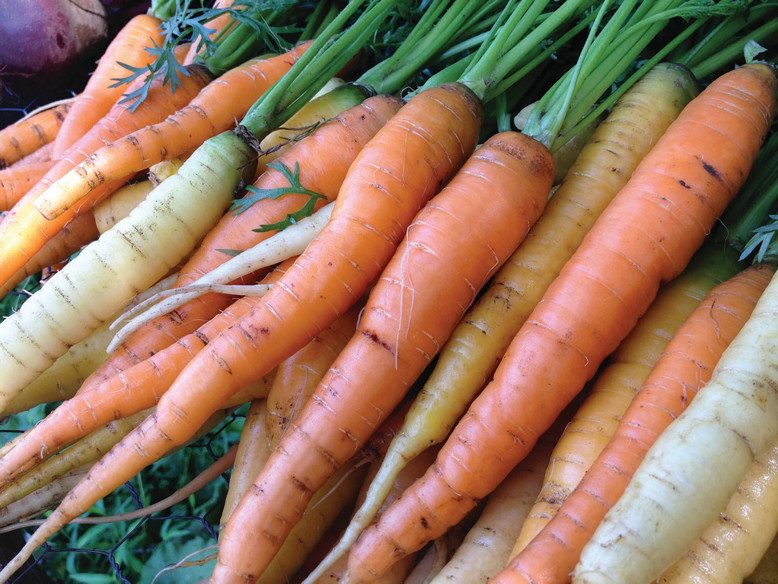
Josh Chaffee began looking for land to farm in 2009. After finding an abandoned plot at the old Larison Turkey Farm in Chester, he recruited friends to help with the labor. He also needed start-up funding.
“The first year, we had help from investors who were interested in starting a local [sustainable, synthetic-free]* farm,” says Chaffee, 26, who named his farm Let It Grow. In time, he created a community-supported agriculture (CSA) program, inviting locals to help fund the farm in return for a season’s worth of authentically-grown* produce, eggs and honey. By 2014, Let it Grow had 19 CSA members.
CSAs charge a one-time fee at the start of farming season, sometimes as low as $250; for Let it Grow, the price starts at $500. The fee helps pay for supplies and labor; it also means CSA members share the risks—such as drought and infestation.
“CSAs help fulfill consumers’ yearning for local product,” says New Jersey Secretary of Agriculture Douglas H. Fisher. “They create an excitement in the family for what they will receive each week.”
Most CSAs offer produce, free-range eggs, and homemade products like jams and hot sauces. Aspen Ridge Farm in Oxford offers pasture-raised veal, pork and chickens. Dogwood Farms in Hillsborough provides the same, plus grass-fed beef from Vernon Valley Farm in Sussex. Fields Without Fences in Frenchtown offers medicinal herbs, including homemade salves, teas, tonics, room sprays and bitters.
As of the 2012 USDA Census of Agriculture, New Jersey had 88 CSA programs, but that number is likely low, since CSAs don’t have to register with the state.
A partial list of CSAs can be found at jerseyfresh.nj.gov.
*Editor’s note: Let it Grow’s produce was originally identified as “organic.” The produce is not certified organic. However, the farm uses sustainable methods, is free of synthetic fertilizers, pesticides and GMOs. Let it Grow labels their produce as “authentically-grown.”
